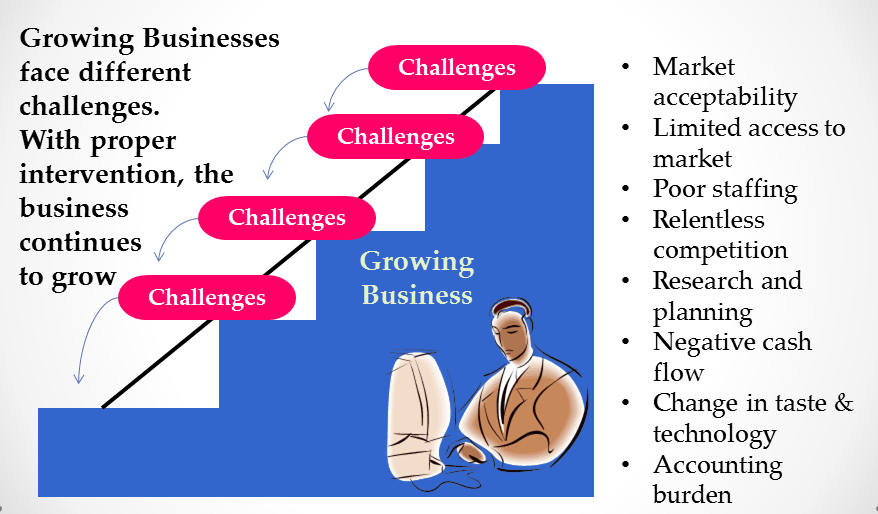7 Essential Strategies for Small Business Growth

As a small business owner, achieving sustainable growth is vital for long-term success. While it may seem challenging in a competitive market, implementing effective growth strategies can make a significant difference. Here are seven essential strategies to help your small business thrive:
- Develop a Strong Value Proposition: Clearly define what sets your business apart from competitors. Identify your unique selling points, understand your target audience, and communicate the value you offer. A compelling value proposition will attract customers and give you a competitive edge.
- Focus on Customer Experience: Providing exceptional customer service is crucial for business growth. Understand your customers’ needs, engage with them through various channels, and aim to exceed their expectations. Satisfied customers are more likely to become loyal, refer your business to others, and contribute to your growth.
- Focus on Customer Experience: Providing exceptional customer service is crucial for business growth. Understand your customers’ needs, engage with them through various channels, and aim to exceed their expectations. Satisfied customers are more likely to become loyal, refer your business to others, and contribute to your growth.
- Build Strategic Partnerships: Collaborating with complementary businesses can create mutually beneficial opportunities. Look for partnerships that expand your reach, enhance your offerings, or provide access to new markets. Strategic alliances can help you tap into new customer segments and increase your brand visibility.
- Leverage Digital Marketing: In today’s digital age, having a strong online presence is essential. Develop a comprehensive digital marketing strategy that includes search engine optimization (SEO), social media marketing, content creation, and email marketing. Utilize analytics to measure the effectiveness of your campaigns and make data-driven decisions.
- Embrace Innovation: Stay ahead of the curve by embracing innovation within your industry. Keep an eye on emerging trends and technologies that could disrupt your market. Experiment with new ideas, products, or services to differentiate yourself and meet evolving customer demands.
- Invest in Employee Development: Your employees play a vital role in your business’s success. Provide opportunities for training and professional development to enhance their skills and knowledge. A well-trained and motivated workforce can drive innovation, improve productivity, and contribute to your growth.
- Monitor Key Performance Indicators (KPIs): Regularly track and analyze essential metrics to assess your business’s performance. Identify key performance indicators relevant to your goals, such as revenue growth, customer acquisition costs, customer retention rates, and profitability. Monitoring these metrics will help you make informed decisions and adjust your strategies accordingly.
Remember, sustainable business growth requires a long-term perspective and a willingness to adapt. Continuously evaluate your strategies, keep an eye on the market, and be open to refining your approach as needed. With the right strategies in place, your small business can thrive and achieve its growth objectives.
Article 2: The Power of Effective Communication in Business
Effective communication is the cornerstone of successful business operations. It plays a vital role in building relationships, driving collaboration, and achieving organizational goals. Whether it’s internal communication among employees or external communication with customers and stakeholders, here’s why effective communication is essential in business:
- Enhancing Employee Engagement: Clear and transparent communication helps foster a positive work environment and improves employee engagement. When employees feel informed and involved, they are more motivated, productive, and committed to their work. Regularly communicate company updates, goals, and expectations to keep everyone aligned and motivated.
- Building Strong Customer Relationships: Communication is the key to building trust and strong relationships with customers. Effective communication helps you understand their needs, address their concerns promptly, and deliver exceptional customer service. Engage with customers through various channels, listen actively, and respond thoughtfully to their feedback.
- Facilitating Collaboration: In a collaborative workplace, effective communication enables teams to work together efficiently. Clear communication channels and open dialogue promote knowledge sharing, creativity, and problem-solving. Encourage regular communication among team members, provide platforms for sharing ideas, and foster a culture of open communication.
- Resolving Conflicts: Conflicts are inevitable in any business environment, but effective.
Conclusion:
Growing a small business requires a combination of strategic thinking, customer-centricity, adaptability, and investment in your team. By developing a clear vision, understanding your target market, establishing a strong online presence, fostering customer loyalty, embracing innovation, expanding your network, and investing in your team, you can position your business for sustainable growth and success. Remember, small steps taken consistently can lead to significant results over time. Stay committed to these essential strategies, and watch your small business flourish in a competitive marketplace.




